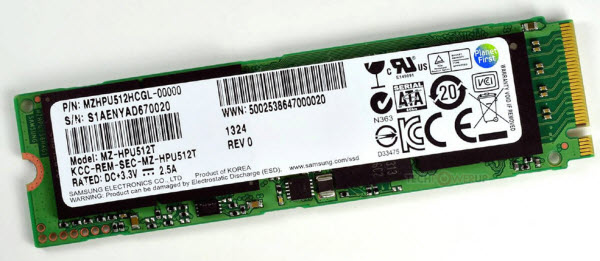The limit of 6Gb/s of the SATA III is just surpassed with the latest technology from Samsung. The code release is XP941 and it's a PCIe flash card which delivers impressive 1.4GB/second sequential read speed, and most importantly, it's not a sample. The mass production has already started and it seems that it's already shipped with the latest 13′ Macbook Air…
Slowly the SATA III format seems to look old, when compared side by side and the emergence (and the performance! ) of PCIe format. The PCIe format based cards from samsung are about 45% faster compared to the fastest SATA III based SSDs. The server and datacenter market already uses PCIe cards, like the ones from Fusion-io or Violin Memory, but those solutions are still rather pricey.
The XP941 lineup consists of 512, 256 and 128GB SSDs, which comes in the M.2 form factor (80mm x 22mm), weighing only about six grams!

The PCIe XP941 flash card will be used mostly in Ultrabooks, but if you think of today's server boards, it might fit and be used as storage acceleration with existing traditional SANs by using solutions like the one from Pernix Data.
Will the PCIe finally became a new standard for the Storage Industry?
For the consumer market – When you consider the performance superiority compared to SATA III, many solutions are emerging. I've wrote about NGFF SATA based mini PCIe flash based cards in my article Second Revolution of Flash storage – NGFF SATA which is developed by Intel and Plextor and can hold double-sided memory modules.
The consumer PCs market could benefit PCIe flash based cards not only through the higher end ultrabooks, but also in normal laptops and PCs, when a mass production of those devices starts. The traditional SATA based aproach will still be used for compatibility reasons, but the boards might have more PCIe slots in the future.
For the enterprise market – Samsung thinks to introduce next generation of SSDs called NVMe (Non-Volatil Memory Express), which will be destined for business. This high density is based on PCIe as well and uses switching architecture with multiple I/O channels which share an endpoint with multiple devices. You can check out the nvmexpress.org website which is the standardisation organization around PCIe based SSDs devices.
The future is bright, and it's definitely SSD based….
